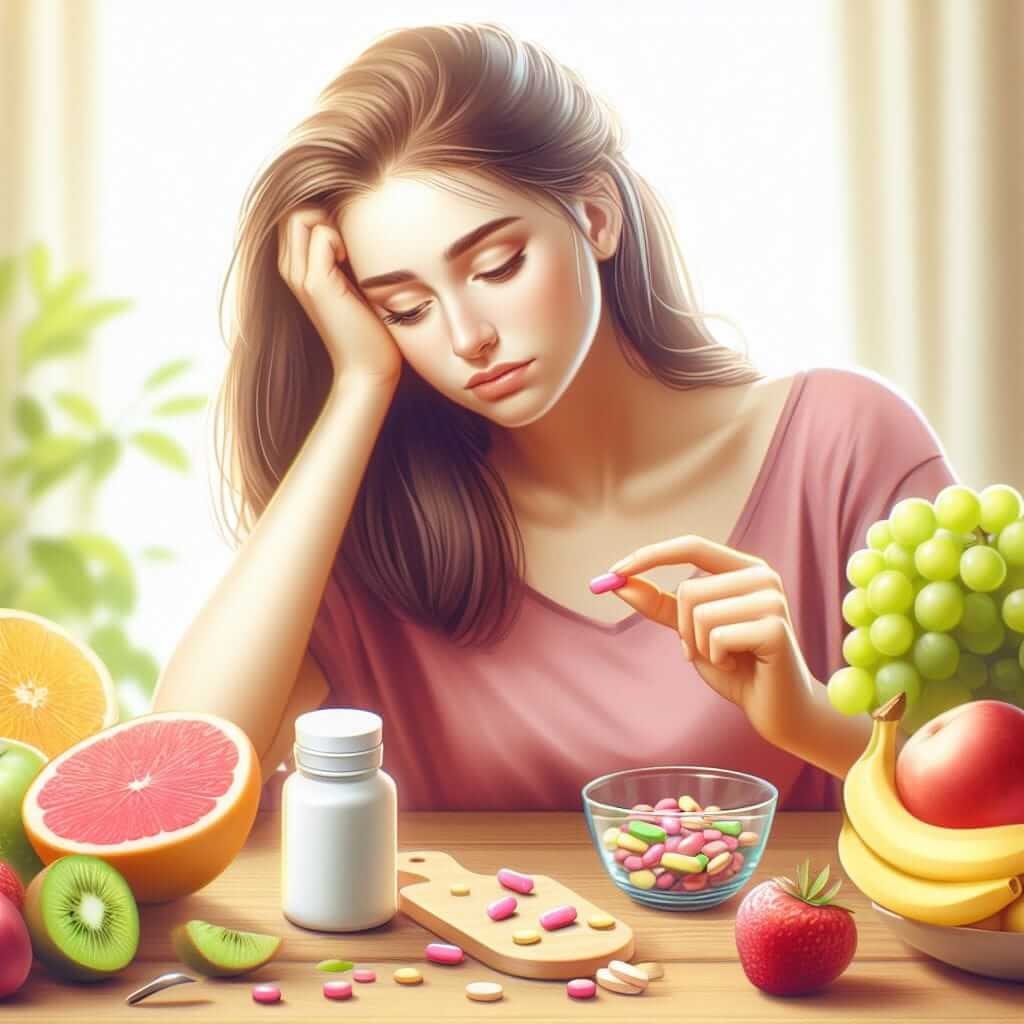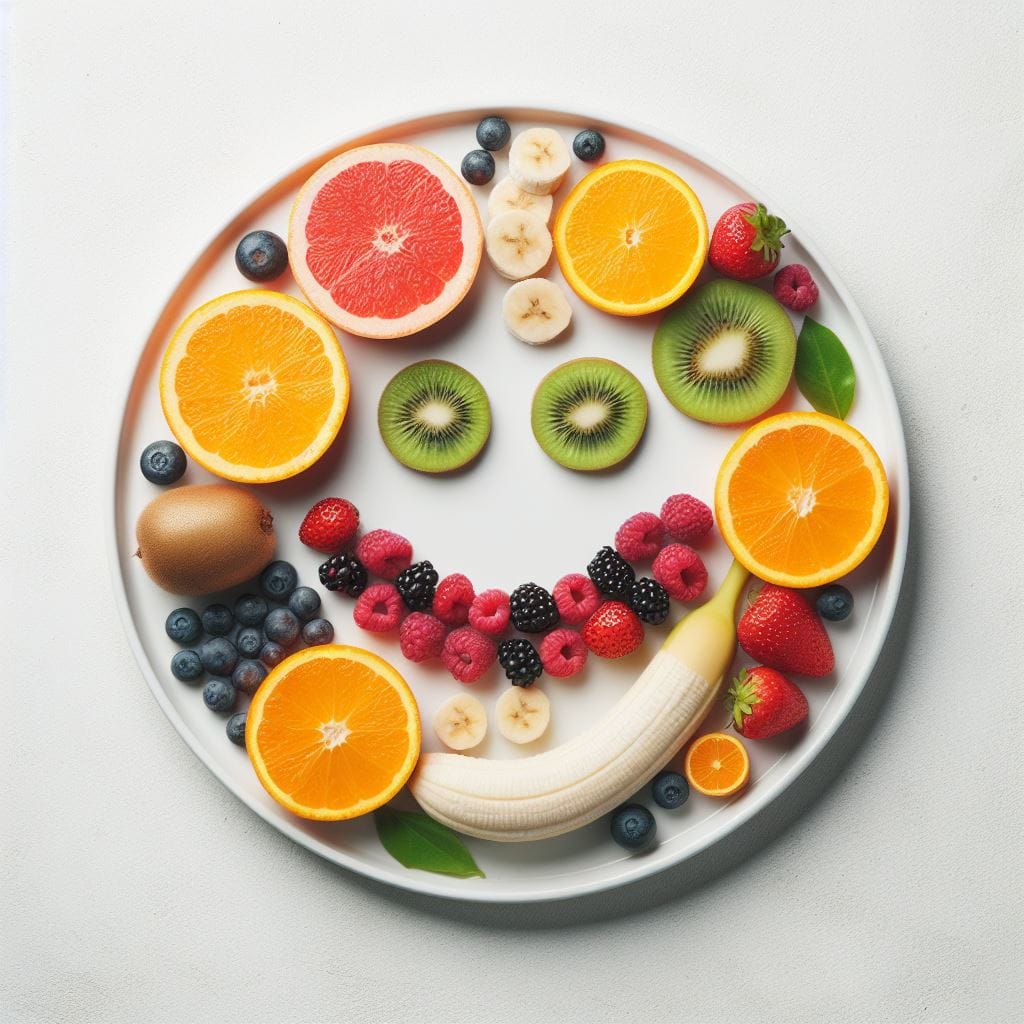Vitamins that help with depression
Different mental health problems could have a negative impact on your lifestyle. Depression is one of them, and sometimes it is linked with lack of vitamins. It is a common health condition. It affects people of all races, ages, and socioeconomic backgrounds.

A study in 2020 shows that 14.8 million adults in the US aged 18 or above had depression.
Vitamins play a fundamental role in healthy brain development. If some vitamins and nutrients are absent from the diet, then it leads to mental health problems. That’s why it’s necessary to know the types of vitamins which are linked to psychological health and how they affect the human brain.
In this article, we will discuss all the vitamins that can help with depression.
What are Vitamins?
These are substances which the body needs to function properly. 13 types of vitamins are following:
●Vitamin C
●The B vitamins (pantothenic acid, biotin, thiamine, riboflavin, B6, B12, niacin,and folate)
●Vitamin A
●Vitamin E
●Vitamin K
●Vitamin D
Which vitamin is responsible for causing depression?
Low levels of vitamin D are associated with causing symptoms of anxiety and depression. Due to this reason, vitamin D level should be maintained to prevent and treat mood disorders or depression.
Which vitamin deficiency causes depression and anxiety?
Deficiency of vitamin B (B1, B6, B7, B12, B complex) can lead to anxiety, depression, and mood swings.
Vitamins that may help with depression
Low levels of some neurotransmitters( chemical messengers of your body) are linked to depression. These includes:
●dopamine
●gamma-Aminobutyric acid (GABA)
●noradrenaline
●serotonin
In a few cases, vitamin deficiencies can worsen these important neurotransmitters. Research shows that taking vitamin supplements is effective in the construction of neurotransmitters, thus it reduces the symptoms of depression.
Vitamin D
People with vitamin D deficiency often have depression and mental health issues. A study shows that 65 year old people with depression were 14% lower in vitamin D levels than other individuals.
90% of vitamin D requirements are fulfilled by exposure to sunlight. Some people need supplements, particularly those who are living in colder regions.
Sources of Vitamin D
●exposure to sunlight (twice a week for 5-30 min)
●egg yolk
●flesh of fatty fish like trout, tuna or salmon
●mushrooms
●fortified milk
●cod liver oil
●fortified cereals
It is a fat-soluble vitamin, so taking its excessive doses can leas to toxicity. Its toxicity can cause kidney failure or irregular heartbeat, in extreme cases.
Medicines which may interfere with vitamin D are listed below:
●statins (to treat high levels of cholesterol)
●steroids
●orlistat (weight loss drug)
●thiazide diuretics
Vitamin B12
It is a water-soluble vitamin. It is required for formation of red blood cells, healthy central nervous system, and DNA synthesis.
Its deficiency is linked to psychiatric symptoms, such as:
●personality change
●irritability
●depression
●dementia
●psychosis (in rare cases)
A study conducted in Pakistan in 2013 in which 122 people having depression were screened. Vitamin B12 deficiency was found in 22% of people and 36% had low range standard levels of this vitamin.
Vitamins B12 supplements along with antidepressants were given to participants. After 3 months of treatment, 20% reduction in the symptoms of depression were shown in all participants.
Sources of vitamin B12
●tuna
●clams
●beef liver
●fortified yeast
●fortified cereals
●yogurt
●milk
It is a water soluble vitamin and our body does not store it in excess. That’s why it has a low risk of toxicity.
Medicines which can interfere with vitamin B12 are following:
●proton pump inhibitors or H2 blockers which are used to reduce stomach acid
●metformin

Folate (B9)
It refers to the various forms of vitamin B9, including folic acid, tetrahydrofolate (THF), dihydrofolate (DHF), and more. Body uses vitamins B to produce new cells.
While folic acid is a synthetic form of folate. Many food manufacturers add folic acid to many products because it does not exist naturally. Pasta, rice, breakfast cereals and bread contain added folic acid.
Deficiency of folate has been linked to depression.
In 2003, 2948 US people from age 15-39were examined. People with major depression had low levels of folate as compared to those who did not have depression.
A study in 2020 found that high levels of vitamin B12 and folate are linked to decreased depression rates.
Sources of vitamin B9
●dark leafy green vegetables such as spinach
●liver
●black-eyed peas
●Brussels sprouts
●asparagus
Medications which can interfere with vitamin B9 include:
●methotrexate (to treat autoimmune diseases)
●anti epileptic medications
●sulfasalazine
Vitamin C
L-ascorbic acid, or vitamin C is a vitamin which performs several body functions. It boosts the immune system and helps in the production of neurotransmitters and collagen. It reduces oxidative stress and chronic inflammation. It also helps to reduce depression.
Sources of vitamin C
●oranges and orange juice
●grapefruit and grapefruit juice
●bell peppers
●kiwi
●broccoli
●strawberries
●Brussels sprouts
It has a very low risk for toxicity.
Medicines and treatment that can interfere with vitamin C:
●Radiation and chemotherapy
●statins
Niacin (B3)
Nicotinic acid (NA) or niacin, is a water-soluble B vitamin which is required for the proper functioning of the body.
A study shows that average adults need about 14-16 mg of niacin on a daily basis. Higher doses of niacin help people with mental disorders.
Various studies have shown that it can lead to many benefits in people with mental health issues such as bipolar disorder, depression and schizophrenia.
In a study in 2018, a person had been taking lithium and other medicines to treat bipolar disorder type II.
Niaspan( B-complex vitamin) at 1000 mg twice a day, was prescribed to him. After 6 weeksof this drug usage, the man reported:
●better sleep
●positive feelings
●normal blood pressure
●no suicidal thoughts
The man had been taking this vitamin for about 11 years, at the time of case study. He had good and stable mental health conditions without other psychological drugs. He gradually stopped taking this medicine.
It is necessary to keep in mind that it was the study of only bipolar depression disorder. It is not confirmed yet that vitamin B3 helps with other types of depression.
Sources of niacin
●beef and beef liver
●turkey
●chicken
●tuna
●brown rice
●fortified cereals
High doses of nicotinic acid results in skin flushing. Skin flushing is a result of dilation of small blood vessels. This condition is harmless but sometimes it is uncomfortable. It leads to burning, tingling and itching sensation.
Nicotinamide is a niacin supplement which has a different chemical structure. You can use this to avoid flushing.
Medications which can interfere with niacin include:
●isoniazid and pyrazinamide
●antidiabetic medications
What is the best vitamin for mental health?
B vitamins help you to perform well in your daily routine and are well known for their mood altering properties.
Psychological issues such as anxiety, insomnia, depression and memory loss are associated with low levels of vitamin B1.
Summary
A balanced diet plays an important role in maintaining mood. Vitamins help many people to reduce symptoms of depression and anxiety. It is necessary to talk to your doctor before you try supplements for depression. This helps you to ensure that the supplement is safe and it doesn’t interfere with other medicines you are taking.
